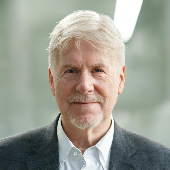
Frederick West, PhD
Pronouns: he, him, his
Contact
Professor, Faculty of Science - Chemistry
- fwest@ualberta.ca
- Phone
- (780) 492-8187
- Address
-
W5-70D Chemistry Centre - West
11227 Saskatchewan Drive NWEdmonton ABT6G 2G2
Overview
Area of Study / Keywords
Organic and Medicinal Chemistry
About
I hail from the great state of Arizona, where I grew up and did my undergraduate studies in Chemistry (at the University of Arizona...the OTHER U of A). I then did doctoral studies in Organic Chemistry at the University of Wisconsin-Madison under the supervision of Professor Edwin Vedejs. Then I spent two years at Columbia University in the labs of Professor Gilbert Stork. In 1988, I began my independent career in the Department of Chemistry at the University of Utah in Salt Lake City. After spending 13.5 years there, I moved to the University of Alberta in January 2002, where I have been ever since.
Research
My research involves chemical synthesis, which is focused on developing the best ways to conduct structural modifications of organic molecules. This includes invention of new reactions, and also applying our knowledge of synthesis to design and prepare biologically active compounds. Some key projects are summarized below:
Novel Domino and Cascade Reactions: Using the Nazarov reaction as our inspiration, we are developing a variety of new methods for generating cyclopentenyl cations, and trapping them with a variety of useful bond-forming processes.
C-Acylimines as Building Blocks: Metal-catalyzed coupling of diazo groups and azides, which produces nitrogen molecules as the only synthetic by-products, leads to transient and reactive C-acylimines. These intermediates can be trapped in situ with a variety of nucleophilic partners, allowing for the rapid build-up of molecular complexity to generate drug-like scaffolds.
Broad-Spectrum Antiviral Compounds: Some of the products from the C-acylimine project above show promising activity against RSV, Zika, and SARS-CoV-2, acting via inhibition of RNA-dependent RNA polymerase. These compounds are being developed as drug candidates. At the same time, we have discovered a new class of antiviral compounds that work by blocking primary viral attachment, and are in the process of optimizing these compounds.
Cancer Imaging Agents: Many types of cancer display unusual levels of transporter proteins for hexose sugars and other key nutrients. This can be exploited by developing mimics for these nutrients that contain reporter groups, such as fluorophores or radionuclides, allowing for the noninvasive detection of tumors. We have several advanced compounds under consideration for clinical evaluation.
DNA Repair as a Clinical Target: The effectiveness of cancer drugs that damage DNA can be compromised by cellular up-regulation of DNA repair machinery. Inhibition of these repair enzymes can make cancer cells more vulnerable to chemotherapy, allowing for the use of lower, less toxic doses. We have developed several promising compounds that target the DNA repair enzyme ERCC1-XPF.
Teaching
For the 2024-2025 academic year, I taught CHEM 263 (Intro Organic, second semester) and CHEM 669/405 (pharmaceutical chemistry). For the 2025-2026 academic year, I will be teaching CHEM 263 both semesters.
Courses
CHEM 263 - Organic Chemistry II
Continuation of the structural and chemical properties of the basic functional groups of organic compounds including alkynes, aromatic compounds, aldehydes, ketones, carboxylic acids and their derivatives and amines. Illustration of these functional groups in natural products such as carbohydrates, amino acids and proteins, nucleic acids and lipids. Discussion of the application of spectroscopic methods for the structure determination in simple organic molecules. Prerequisites: CHEM 261 or CHEM 264 and 266 or SCI 100. Students who have obtained credit for CHEM 265 cannot take CHEM 263 for credit.
Research Students
Currently accepting undergraduate students for research project supervision.
I currently have several undergraduate research students in my group (CHEM 399), with limited space for any others. However, interested students are encouraged to reach out directly via email to check on the availability of any positions. In general, I prefer to take students in Chemistry undergraduate programs, since much of our laboratory work involves chemical synthesis.